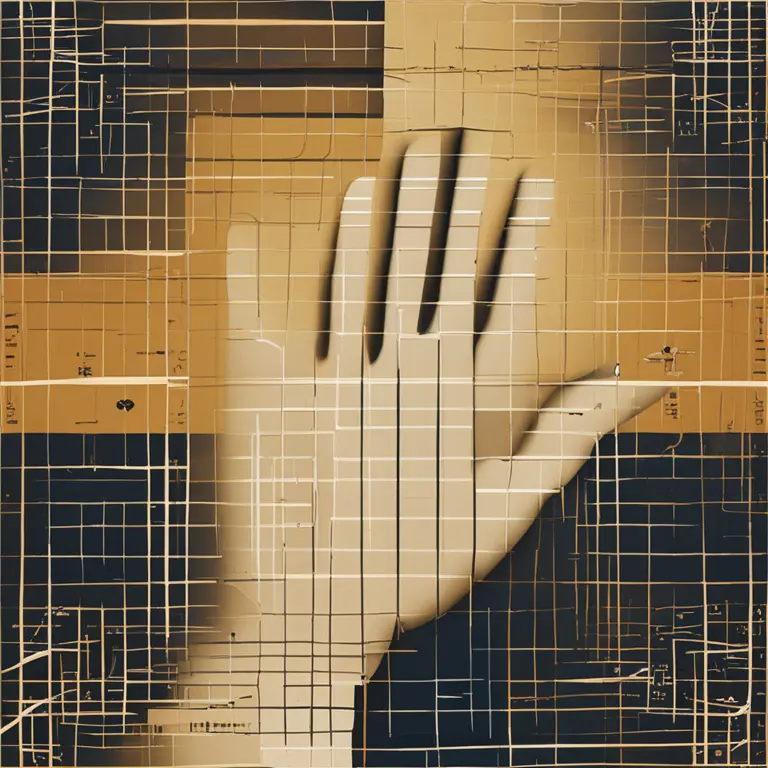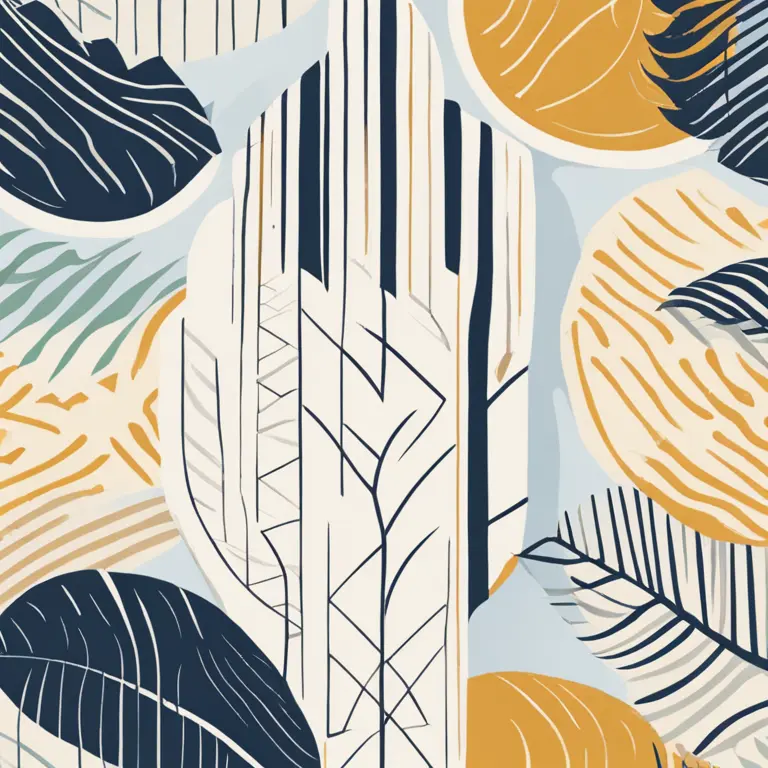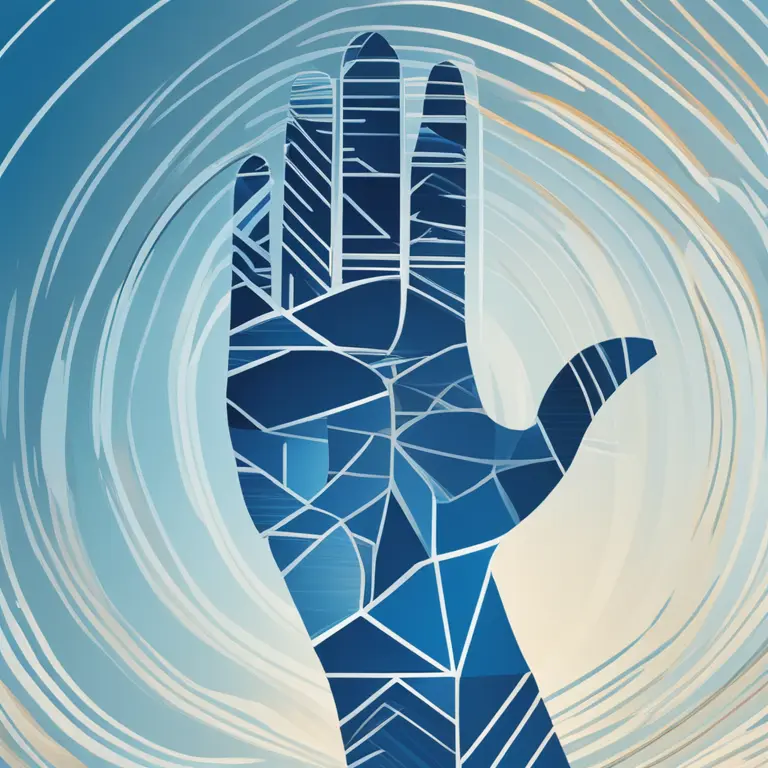
The Life Line in Palmistry: Vital Insights
Discover the importance of the life line in palmistry and what insights it can reveal about your vitality, life experiences, and important events.
article by Nora Pennington
Defining the Life Line
The life line is among the most recognized features in the study of palmistry. This prominent crease begins between the index finger and thumb, curving around the base of the thumb towards the wrist. It is often misconstrued solely as an indicator of longevity, however, palmists consider it a complex representation of vitality, major life changes, and physical energy. Its depth, curvature, and length provide nuanced personal insights, extending beyond mere lifespan predictions. Understanding its characteristics can illuminate aspects of your health, lifestyle, and adaptability to life's shifts and turns.

Interpreting the Life Line’s Length
Contrary to popular belief, a short life line does not necessarily predict an abbreviated life. Instead, the length offers clues to your energy and zest for living. A long, deeply etched line suggests robust vitality and stamina, potentially indicating a person full of vigor and resilience. On the flip side, a short or shallow line could suggest a person may easily tire or could benefit from conserving energy. Palmists also note that a break in the life line might symbolize a significant life transformation or a complete change in lifestyle or environment.

Life Line Contours and Markings
The smoothness and quality of the line also bear importance. An unbroken, clear life line is traditionally a sign of a smooth, unimpeded life journey. Any variations, such as chains, breaks, or forks, could indicate periods of instability, health challenges, or crucial decisions. The presence of multiple life lines could suggest a life rich with external support—perhaps family, friends, or loved ones who provide strength and reassurance throughout the individual's life.

Reading Between the Lines
While analyzing the life line, intersections and connections with other lines are taken into account. The interplay between the life line and head line, for instance, can reveal the balance between intellect and physical health. A wide gap might suggest an adventurous spirit and a love for excitement, whereas a close start of these lines could indicate a more cautious approach to life. The relationship with the fate line is another layer palmists explore, looking for clues in how personal agency and external forces interact in carving one's life path.
Variations Across Cultures and Systems
Palmistry practices vary across cultures, with different traditions placing alternative interpretations on the life line. While Western palmistry has popularized certain readings of the line, Vedic palmistry and Chinese palm reading offer alternative perspectives that may incorporate elements of energy flow, the elemental balance, and even predictions tied to specific ages or phases of one’s life. Thus, it's crucial to approach palmistry with cultural sensitivity and awareness of its rich, diverse heritage.
Contemporary Palmistry and Life Line Insights
As palmistry evolves, practitioners consider the context of modern lifestyles. The psychological and emotional components are now as vital as the physical. Factors such as stress, work-life balance, and mental health can manifest in the life line, offering a more holistic view. In the digital age, even as we gravitate towards technology for answers, the allure of palmistry's personalized insight remains undeniable, providing a tactile connection to self-awareness that has stood the test of time.
Published: 1/11/2024
Modified: 1/12/2024
More predictions
Come back here soon to learn more about yourself and your future


Can We Trust Palmistry?
Delving into the realm of palmistry, this article examines its credibility and place in contemporary spiritual practices.


The Possibility of Palmistry in Cancer Detection
Examining the claims that palmistry holds any potential in identifying the risk of cancer: a deep dive into the world of mysticism and medicine.


Can Palmistry Foresee One’s Demise?
Delve into the contentious debate about whether palmistry can predict the end of life and the ethical considerations of such a claim.